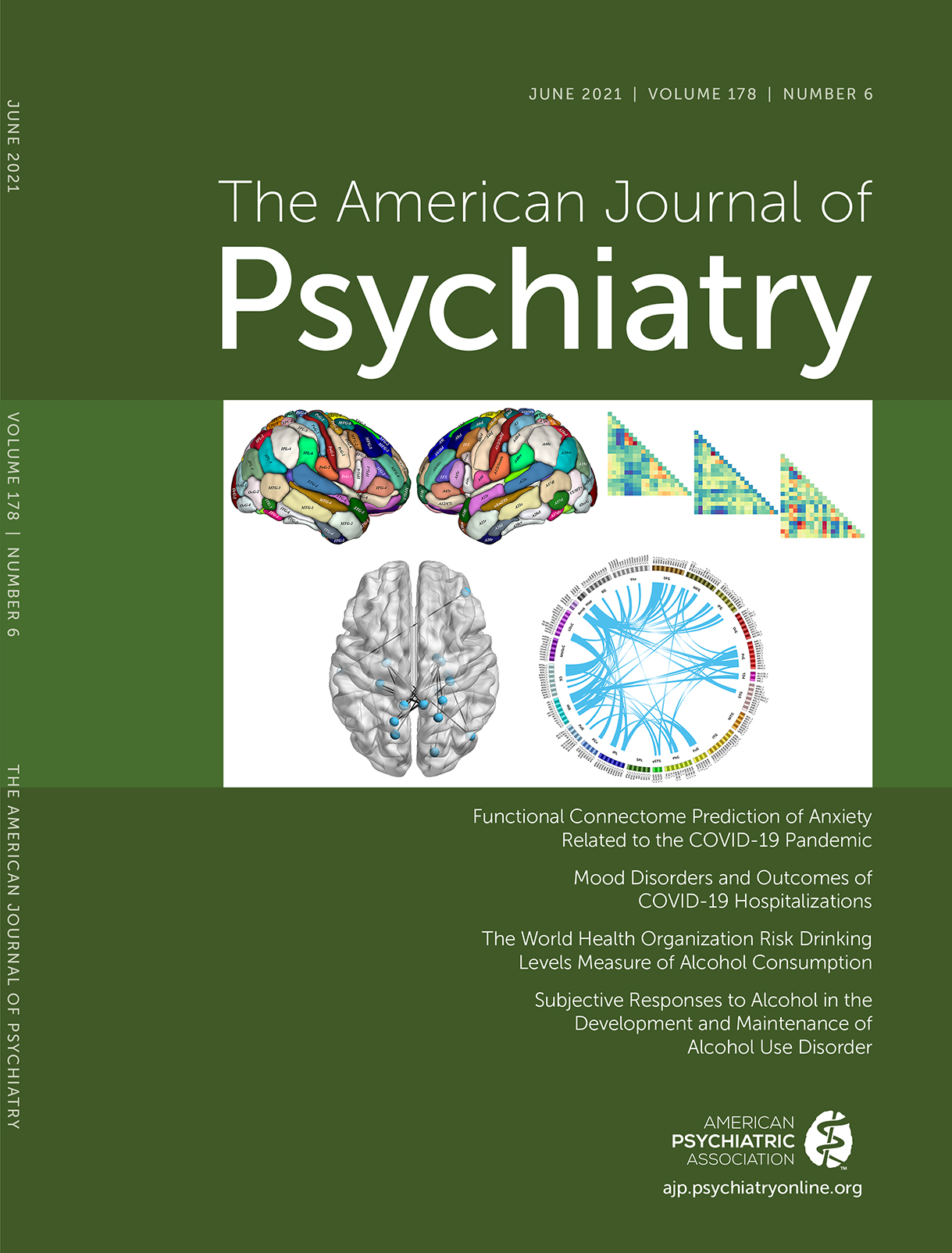Elevated C-Reactive Protein in Patients With Depression, Independent of Genetic, Health, and Psychosocial Factors: Results From the UK Biobank
Abstract
Objective:
The authors investigated the pathways (genetic, environmental, lifestyle, medical) leading to inflammation in major depressive disorder using C-reactive protein (CRP), genetic, and phenotypic data from the UK Biobank.
Methods:
This was a case-control study of 26,894 participants with a lifetime diagnosis of major depressive disorder from the Composite International Diagnostic Interview and 59,001 control subjects who reported no mental disorder and had not reported taking any antidepressant medication. Linear regression models of log CRP level were fitted to regress out the effects of age, sex, body mass index (BMI), and smoking and to test whether the polygenic risk score (PRS) for major depression was associated with log CRP level and whether the association between log CRP level and major depression remained after adjusting for early-life trauma, socioeconomic status, and self-reported health status.
Results:
CRP levels were significantly higher in patients with depression relative to control subjects (2.4 mg/L compared with 2.1 mg/L, respectively), and more case than control subjects had CRP levels >3 mg/L (21.2% compared with 16.8%, respectively), indicating low-grade inflammation. The PRS for depression was positively and significantly associated with log CRP levels, but this association was no longer significant after adjustment for BMI and smoking. The association between depression and increased log CRP level was substantially reduced, but still remained significant, after adjustment for the aforementioned clinical and sociodemographic factors.
Conclusions:
The data indicate that the “genetic” contribution to increased inflammation in depression is due to regulation of eating and smoking habits rather than an “autoimmune” genetic predisposition. Moreover, the association between depression and increased inflammation even after full adjustment indicates either the presence of yet unknown or unmeasured psychosocial and clinical confounding factors or that a core biological association between depression and increased inflammation exists independently from confounders.



